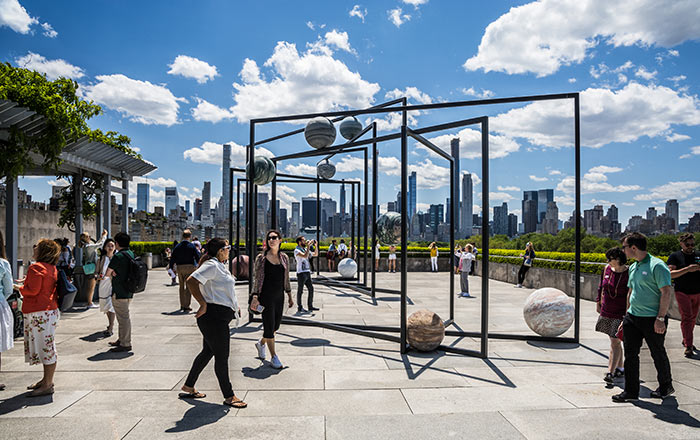Returned to lender The Met accepts temporary loans of art both for short-term exhibitions and for long-term display in its galleries.
Repository
George Brecht American
Not on view
The objects in this cabinet beg to be activated and handled. A key member of the Fluxus movement, Brecht choreographed events; more specifically, he turned objects into events by inviting the visitor’s engagement. Repository’s power relies on the strong stimulative nature of the items, and it could never be truly finished because the viewer and the event were always changing. Now that the work has entered an institutional context, however, the need to preserve it overrides the call to participation. Thus the concept of discovery is forestalled by museum practice, leaving the eventfulness of Repository unfulfilled.
Due to rights restrictions, this image cannot be enlarged, viewed at full screen, or downloaded.

